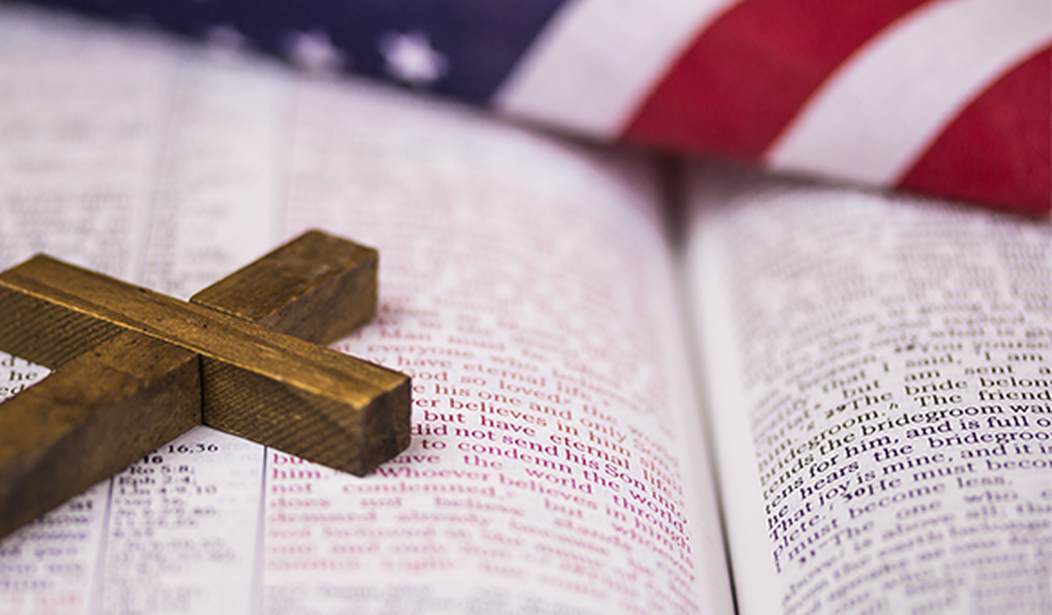Students in Lewis County, West Virginia, returned from Christmas break this year to a disappointing surprise. The students, part of Youth Alive, a Christian Club at their high school, took advantage of a resource available to all student clubs: a bulletin board on which student clubs may talk to other students about their club’s activities.
The students pegged Post-It Notes—3x3 inches square—to the bulletin board with messages like, “Finding Help in the Bible.” The notes even contained inspirational passages of Scripture meant to encourage their classmates who could take them from the board on their way to class.
But, yielding to a complaint as to the religious viewpoint expressed in what is the Constitutionally protected speech of these students, Lewis County Schools removed all of the religious content from Youth Alive’s bulletin board.
Nearby, other bulletin boards expressing secular viewpoints—by the Young Democrats, the Health Ambassadors, etc.—were left undisturbed. Lewis County School only targeted the religious viewpoints expressed by the students of Youth Alive.
Far too many religious students find themselves in similar situations across the country. Administrators and teachers, perhaps acting out of fear, often default to the censorship of religious speech within schools without understanding the message their actions send.
Brooks Hamby, the salutatorian of his southern Californian high school a few years ago, submitted his speech to the principal in advance of graduation. The principal saw that Brooks highlighted the important role religion played in his success as a student and twice sent the draft speech back to Brooks with instructions to remove the religious content. When, on the third draft of the speech, the religious content remained, the principal grabbed a black marker and drew black censor bars through any religious viewpoint he wished to express.
Recommended
When Mackenzie Fraiser’s teacher assigned her class the assignment of creating a PowerPoint presentation introducing themselves to the class, she told the 12-year-old students that they could not quote from the Bible or the Book of Mormon. Mackenzie wanted to quote her favorite Bible verse, John 3:16, but the pastor’s daughter feared doing so would be “illegal” since her teacher banned the expression of religious viewpoints.
Giovanni Rubeo just wanted to read the Bible his church gave him while other kids read their books of their choice during “free reading time” in his fifth grade classroom in Ft. Lauderdale. The teacher told him he could not read “that religious book” in her classroom.
It’s no wonder, then, that the West Virginia Legislature considered and passed the WV Student Religious Liberties Act this session. If signed by Governor Jim Justice, the new law will make it clear that school officials may not “discriminate against students . . . on the basis of a religious viewpoint or religious expression.”
That is something that should perhaps be obvious in a country in which, as the U.S. Supreme Court declared in the 1969 decision of Tinker v. Des Moines Independent School District: “It can hardly be argued that either students or teachers shed their constitutional rights to freedom of speech or expression at the schoolhouse gate.”
That, Justice Abe Fortas wrote, “has been the unmistakable holding of this Court for almost 50 years.”
Yet, as the experience of the Youth Alive students in Lewis County makes clear, that “unmistakable holding” is as often forgotten as it is ignored by school officials who choose instead to censor religious viewpoints expressed by students.
In my career litigating religious liberty cases across the country, it has been clear that school officials most often censor student religious speech because they lack a policy protecting it. Or, if they have a policy, they do not follow it.
The WV Student Religious Liberties Act sets the standard. Local school officials should then adopt a written policy that sets out how school officials will respect the religious viewpoints of their students in their local context.
And, thanks to updated guidance on student religious liberty issued recently by President Trump and the U.S. Department of Education, school officials must also certify that they are compliant with laws protecting student religious liberty in order to receive federal funding. This combination yields what the framers of our First Amendment intended: freedom of religion for all Americans—including our students.
We can never be too vigilant in the defense of freedom—especially religious freedom. Students from Matewan to Morgantown, Weston to Wheeling, and throughout the country deserve the precise freedom the West Virginia Legislature intends to provide.

























Join the conversation as a VIP Member